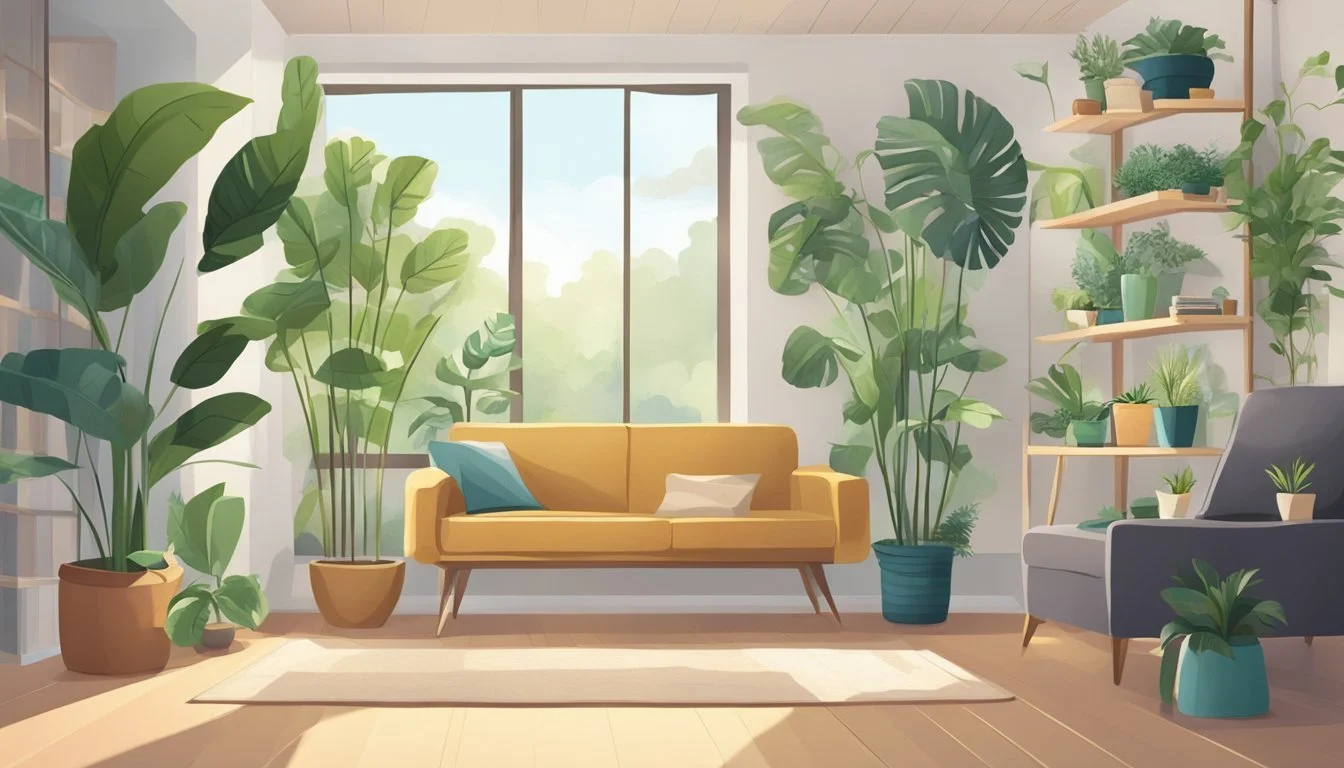9 Unexpected Benefits of Practicing Minimalism for Mental Health
Surprising Ways Decluttering Boosts Wellbeing
Minimalism has gained popularity in recent years as a lifestyle choice that promotes simplicity and intentionality. While often associated with decluttering physical spaces, its impact extends far beyond the realm of material possessions. The practice of minimalism can have profound effects on mental health and well-being.
Embracing minimalism can lead to unexpected benefits for mental health, including reduced stress, improved focus, and increased contentment. By simplifying various aspects of life, individuals may find themselves better equipped to navigate challenges and cultivate a more positive mindset. This article explores nine surprising ways in which adopting a minimalist approach can enhance mental well-being and overall quality of life.
1) Less Clutter, More Clarity
Minimalism promotes a decluttered living space, which directly impacts mental clarity. By reducing physical possessions, individuals create an environment that allows for clearer thinking and improved focus.
Clutter has been shown to increase stress levels and cognitive load. When surrounded by excess items, the brain must process more information, leading to mental fatigue and decreased productivity.
A minimalist approach helps eliminate distractions and creates a calmer atmosphere. This simplified setting allows the mind to relax and concentrate on important tasks or thoughts without unnecessary interference.
Research indicates that people in organized spaces tend to make better decisions and feel more in control of their surroundings. This sense of control can positively influence overall mental well-being and reduce anxiety.
Minimalism encourages intentional living, prompting individuals to carefully consider what they truly need. This mindful approach extends beyond physical possessions to mental clutter, helping people prioritize their thoughts and goals more effectively.
2) Enhanced Focus
Minimalism can significantly improve one's ability to concentrate and maintain focus. By reducing physical clutter and mental distractions, individuals often find it easier to direct their attention to important tasks and goals.
A simplified environment helps minimize sensory overload, allowing the mind to process information more efficiently. This can lead to increased productivity and improved performance in both personal and professional spheres.
Practicing minimalism also encourages individuals to prioritize their activities and commitments. By focusing on what truly matters, people can allocate their mental resources more effectively, leading to deeper engagement and better results in their chosen pursuits.
The reduction of digital clutter, such as unnecessary notifications and social media distractions, can further enhance focus. This allows for longer periods of uninterrupted concentration, which is essential for complex problem-solving and creative endeavors.
Minimalism's emphasis on intentionality can help individuals develop stronger attention skills over time. As they become more adept at identifying and eliminating nonessential elements in their lives, their ability to maintain focus naturally improves.
3) Improved Decision Making
Minimalism can enhance decision-making abilities by reducing mental clutter. With fewer possessions and commitments, individuals often experience clearer thinking and improved focus.
This clarity allows for more thoughtful and deliberate choices. People practicing minimalism may find it easier to prioritize what truly matters to them, leading to more aligned decisions with their values and goals.
The reduced stress associated with minimalism can also contribute to better decision-making. When not overwhelmed by excess, individuals may approach choices with a calmer mindset, enabling more rational and less impulsive decisions.
Minimalism encourages a habit of careful consideration before acquiring new items or taking on new responsibilities. This mindset can extend to other areas of life, fostering more intentional and well-reasoned decisions across various aspects.
By simplifying their environment and lifestyle, minimalists often report feeling more in control. This sense of control can boost confidence in decision-making, as individuals trust their ability to make choices that align with their simplified lifestyle.
4) Better Sleep
Minimalism can have a positive impact on sleep quality. By reducing clutter in the bedroom, individuals create a more peaceful and relaxing environment conducive to rest.
A minimalist approach to the sleeping space eliminates visual distractions that can interfere with falling asleep. Fewer items in the room mean less time spent cleaning and organizing, potentially leading to earlier bedtimes.
Minimalism often encourages the use of high-quality, essential items. This principle applied to bedding and mattresses can result in improved physical comfort during sleep.
The practice of minimalism may also reduce mental clutter. With fewer possessions to worry about, individuals may experience less anxiety and rumination at bedtime, promoting easier sleep onset.
Some minimalists opt for electronics-free bedrooms, removing devices that emit blue light or cause distractions. This can help regulate natural sleep-wake cycles and improve overall sleep hygiene.
By prioritizing sleep as an essential aspect of well-being, minimalists may be more likely to create and maintain consistent bedtime routines. These habits can further enhance sleep quality and duration.
5) Increased Creativity
Minimalism can spark a surge in creativity by clearing mental clutter and physical distractions. With fewer possessions and commitments, individuals often find more mental space for innovative thinking and creative pursuits.
A decluttered environment allows the mind to focus on ideas rather than objects. This newfound mental clarity can lead to fresh perspectives and novel solutions to problems.
Minimalism encourages resourcefulness, as people learn to do more with less. This mindset can foster creative problem-solving skills and inspire unique approaches to daily challenges.
By reducing digital and material distractions, minimalism creates more time for creative hobbies and projects. This extra time allows for deeper engagement in artistic endeavors or innovative thinking.
The simplicity of a minimalist lifestyle can also enhance appreciation for subtle details and beauty in everyday surroundings. This heightened awareness can fuel creative inspiration and artistic expression.
6) Reduced Anxiety
Minimalism can significantly reduce anxiety levels for many individuals. By decluttering physical spaces and simplifying daily routines, people often experience a decrease in overwhelming feelings and racing thoughts.
A minimalist lifestyle helps eliminate excess stimuli that can trigger anxiety. With fewer possessions to manage and maintain, individuals have more mental bandwidth to focus on what truly matters.
Decision fatigue, a common source of anxiety, is lessened through minimalism. Fewer choices in clothing, possessions, and activities can lead to clearer thinking and reduced stress.
Financial anxiety may also decrease as minimalists typically spend less on unnecessary items. This can lead to improved financial stability and peace of mind.
Minimalism encourages mindfulness and living in the present moment. This shift in focus can help alleviate anxiety about the future or regrets about the past.
By creating calm, uncluttered environments, minimalism promotes a sense of control and order. This can be particularly beneficial for those who experience anxiety related to chaos or unpredictability.
7) Boosted Mood
Minimalism can have a positive impact on mood. By reducing clutter and unnecessary possessions, individuals often experience a sense of relief and lightness.
This decluttering process can lead to decreased stress and anxiety levels. When surrounded by fewer items, people tend to feel more in control of their environment and less overwhelmed.
Focusing on essentials allows for greater appreciation of what one has. This shift in perspective can foster gratitude and contentment, contributing to an improved overall mood.
Minimalism also encourages individuals to prioritize experiences over material possessions. Engaging in meaningful activities and relationships can lead to increased happiness and life satisfaction.
The simplified lifestyle often results in fewer financial worries. Reduced spending on unnecessary items can alleviate money-related stress, further enhancing mood and well-being.
8) Strengthened Relationships
Minimalism can have a positive impact on interpersonal connections. By reducing material possessions and distractions, individuals often find more time and energy to invest in their relationships.
Practicing minimalism encourages intentionality in social interactions. People become more selective about who they spend time with, focusing on meaningful connections rather than superficial acquaintances.
Minimalist principles can lead to improved communication. With fewer distractions, couples and families may engage in more quality conversations and shared activities.
The decluttering process associated with minimalism can extend to emotional baggage as well. This can result in healthier, more authentic relationships built on trust and understanding.
Minimalists often report feeling less competitive and more content with their lives. This contentment can translate to reduced jealousy and comparison in relationships, fostering a more supportive and harmonious social environment.
By simplifying their lives, individuals may discover they have more resources to support friends and loved ones. This can strengthen bonds and create a sense of community based on shared values rather than material possessions.
9) More Gratitude
Practicing minimalism often leads to increased gratitude. As people declutter their physical spaces and simplify their lives, they tend to appreciate what remains more deeply.
Minimalism helps individuals focus on what truly matters, fostering a sense of contentment with less. This shift in perspective can enhance awareness of life's simple pleasures and blessings.
Research suggests that gratitude has numerous mental health benefits. It can boost happiness, improve mood, and increase overall life satisfaction.
Grateful individuals may experience reduced stress levels and improved sleep quality. They also tend to have stronger immune systems and lower blood pressure.
By cultivating gratitude through minimalism, people may become less materialistic and more fulfilled. This mindset can lead to greater resilience and a decreased likelihood of experiencing burnout.
Minimalists often report feeling thankful for experiences and relationships rather than possessions. This focus on intangible values can contribute to a more meaningful and satisfying life.
The Psychological Foundation of Minimalism
Minimalism in psychology centers on reducing mental clutter and focusing on what truly matters. This approach emphasizes simplicity, intentionality, and clarity in thoughts and behaviors.
Understanding Minimalism in Mental Health
Minimalism in mental health involves streamlining cognitive processes and emotional responses. It encourages individuals to identify and prioritize their core values and needs. This practice helps reduce mental overwhelm and anxiety by eliminating unnecessary mental and emotional baggage.
Practitioners often report increased focus and decreased stress levels. By simplifying their mental landscape, people can allocate more energy to meaningful pursuits and relationships. This can lead to improved decision-making and a greater sense of purpose.
Core Principles of Minimalist Psychology
The key principles of minimalist psychology include:
Intentional living
Mindfulness
Essentialism
Cognitive decluttering
These principles guide individuals to focus on what's truly important. Intentional living involves making conscious choices about one's thoughts and actions. Mindfulness promotes present-moment awareness, reducing rumination on past or future concerns.
Essentialism in psychology means prioritizing core needs and values over societal pressures or external expectations. Cognitive decluttering involves identifying and eliminating unhelpful thought patterns and beliefs.
By applying these principles, individuals can create mental space for growth, creativity, and well-being. This approach can lead to increased self-awareness and a more balanced emotional state.
Minimalism and Stress Reduction
Minimalism offers powerful tools for reducing stress and cultivating calm in daily life. By simplifying our environments and routines, we can create more space for mental clarity and relaxation.
Eliminating Clutter to Enhance Calm
Cluttered spaces often lead to cluttered minds. Removing excess items from our surroundings can significantly reduce visual and mental stimuli, allowing the brain to relax and focus. This process of decluttering extends beyond physical objects to include digital spaces and schedules.
Clearing out unused items from closets, drawers, and shelves creates a sense of order and control. Organizing digital files and unsubscribing from unnecessary emails streamlines information flow. These actions reduce decision fatigue and free up mental energy for more important tasks.
Studies show that people living in tidier spaces experience lower levels of cortisol, the stress hormone. A clutter-free environment promotes better sleep quality and improved concentration, further contributing to stress reduction.
Creating Mindful Living Spaces
Minimalist spaces encourage mindfulness and present-moment awareness. By carefully curating our surroundings, we can design environments that support mental well-being and relaxation.
Choosing calming colors like soft blues, greens, or neutrals for walls and furnishings can lower heart rate and blood pressure. Incorporating natural elements such as plants or wood textures brings a sense of tranquility to indoor spaces.
Minimalist decor emphasizes quality over quantity, allowing each item to serve a purpose or bring joy. This intentional approach to design reduces visual noise and creates a serene atmosphere conducive to stress relief.
Designating specific areas for relaxation, such as a reading nook or meditation corner, provides dedicated spaces for unwinding. These mindful zones serve as physical reminders to pause and reset throughout the day.
Boosting Focus and Productivity Through Minimalism
Minimalism can significantly enhance focus and productivity by eliminating distractions and streamlining tasks. This approach allows individuals to concentrate on what truly matters, leading to improved efficiency and mental clarity.
Prioritizing Essential Tasks
Minimalism encourages a careful evaluation of priorities. By identifying and focusing on essential tasks, individuals can allocate their time and energy more effectively. This practice often involves creating simple to-do lists, emphasizing quality over quantity.
Techniques like time-blocking and the Pomodoro method can be particularly effective when combined with minimalist principles. These strategies help maintain focus on one task at a time, reducing mental clutter and increasing productivity.
Many minimalists find that reducing their commitments leads to better results in key areas of their lives. By saying "no" to non-essential activities, they create space for deep work and meaningful projects.
Minimizing Distraction
A clutter-free physical and digital environment is crucial for maintaining focus. Minimalism promotes the removal of unnecessary items and information, creating a calm and conducive workspace.
Digital minimalism involves curating online content consumption, limiting social media use, and organizing digital files. These practices can significantly reduce cognitive load and prevent information overload.
Implementing a minimalist approach to technology usage, such as turning off notifications or using apps that block distracting websites, can lead to longer periods of uninterrupted focus. This heightened concentration often results in higher quality work and increased job satisfaction.
Embracing minimalism in daily routines, such as simplifying meal planning or wardrobe choices, can free up mental energy for more important tasks and decisions.



